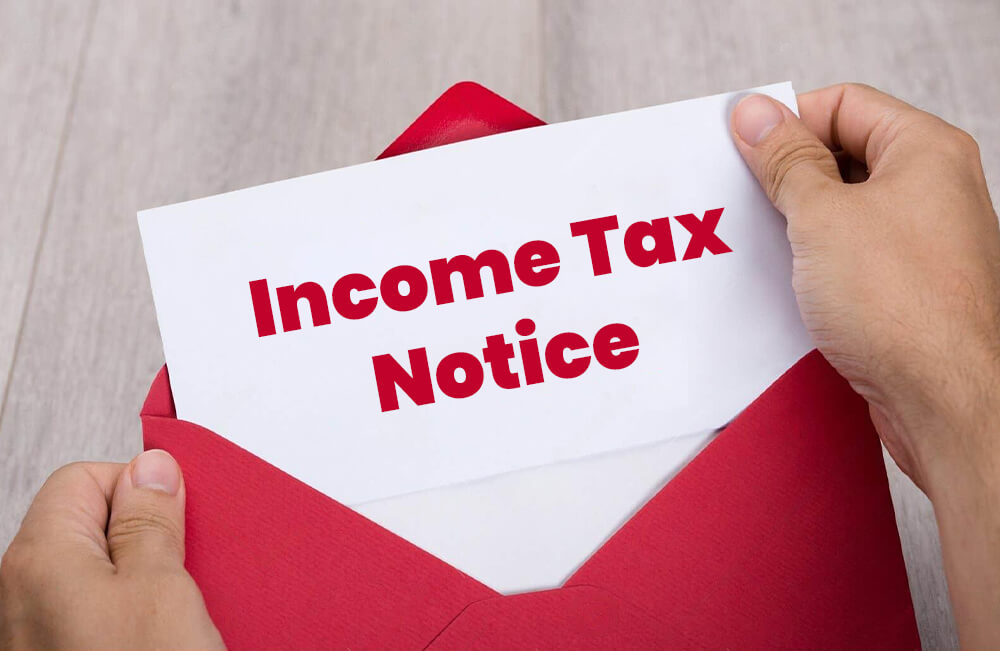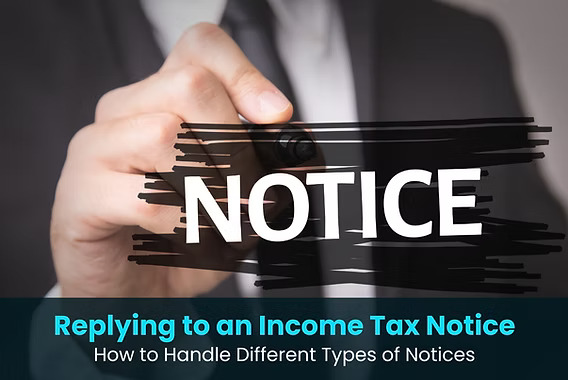
Filing your Income Tax Return (ITR) is a crucial part of every taxpayer’s responsibility. However, even after doing your due diligence, you may sometimes receive an income tax notice from the Income Tax Department. While this can be alarming, not every notice implies wrongdoing. Often, these notices are routine and demand clarification or additional information.
Knowing how to reply to income tax notices is essential for individuals and businesses alike. With accurate knowledge and the right support, such as from a reputable firm like KKS Capital Advisors, you can navigate these situations smoothly and avoid penalties or legal consequences.
In this comprehensive guide, we’ll explore:

An income tax notice is a formal communication sent by the Income Tax Department seeking clarification or information regarding your ITR, income, or tax compliance. It can relate to discrepancies in your return, underreporting, non-filing, or demand for payment.
Receiving a notice doesn’t always mean a penalty; in many cases, it could be a routine query or correction request.
Understanding the type of notice you’ve received helps determine how to reply effectively. Here are the most common income tax notice issued by the department:
Issued when there is an error or missing information in the ITR. The department allows a chance to rectify it within a specific time frame.
A routine intimation highlighting any discrepancy between the return filed and the records with the department. It could result in a refund, demand, or simply an acknowledgement.
This is issued when your return is selected for detailed scrutiny, and the Assessing Officer wants to verify claims, deductions, or exemptions.
If the department believes that some income has escaped assessment, this notice is sent to reassess the ITR.
This is a demand notice issued when tax, interest, or penalty is due as per assessment. It must be paid within the specified time to avoid further legal consequences.
If your refund is being adjusted against a previous demand, the department issues this notice.
There are several reasons for which the Income Tax Department may issue a notice:
Being proactive in your financial and tax planning—such as partnering with KKS Capital Advisors, a leader in income tax and compliance consulting—helps minimize these issues.
Responding correctly and promptly is key. Here’s a step-by-step guide on how to reply to an income tax notice:
Collect all documents needed to support your response, such as:
A professional and well-documented response can significantly improve your case. More on the income tax notice reply format below.
Upload the supporting documents, enter your response, and submit.
Save the acknowledgment for your records. This acts as proof that you’ve responded within the stipulated timeline.
Here’s a general template you can use when replying to income tax notices. For more accurate and tailored drafting, we recommend working with a tax consultant like KKS Capital Advisors.
PAN: [Your PAN] Address: [Your Address] Date: [DD/MM/YYYY]
To The Assessing Officer [Income Tax Department Address / Ward No.] Subject: Response to Income Tax Notice u/s [Section Number] – PAN [XXXXXXX]
Dear Sir/Madam,
This is in reference to the notice issued under section [Section Number] of the Income Tax Act, dated [Notice Date], pertaining to the assessment year [AY XXXX-XX].
I would like to respectfully submit the following in response:
I hope the above response clarifies the matter. Please feel free to reach out for any further information.
Thank you for your time and consideration.
Yours sincerely, [Your Name] Mobile: [Contact Number] Email: [Email Address]
Enclosures: [List of documents]
Failing to respond or comply with income tax notices can lead to:
Engaging a professional tax consultant can help prevent these consequences.
KKS Capital Advisors is a premier name in tax consultancy, known for its holistic and compliance-driven approach to income tax and GST matters.
We specialize in customized, prompt, and legally sound responses that protect your interests while complying with tax laws.
Receiving an income tax notice may be unsettling, but with the right approach and support, it can be resolved smoothly. Whether it’s a demand notice income tax, a defective return notice, or a reassessment query, prompt and accurate response is the key.
If you’re not sure how to reply to an income tax notice, don’t leave it to chance. Engage the experts at KKS Capital Advisors, who bring unmatched expertise, professionalism, and a client-centric approach to every case.
Company Name: KKS Capital Advisors Address: 2nd Floor, SCO 12, Sector 23A, Gurgaon Phone: +91 9654073033 Email: info@kkscapital.com Website: https://www.kkscapital.com/
KKS Capital Advisors Private Limited is a Tax, Regulatory and Financial Advisory Company. KKS Capital offers diversified portfolio of services to its clients and aims to continue the excellence in the services offered.
Social Chat is free, download and try it now here!